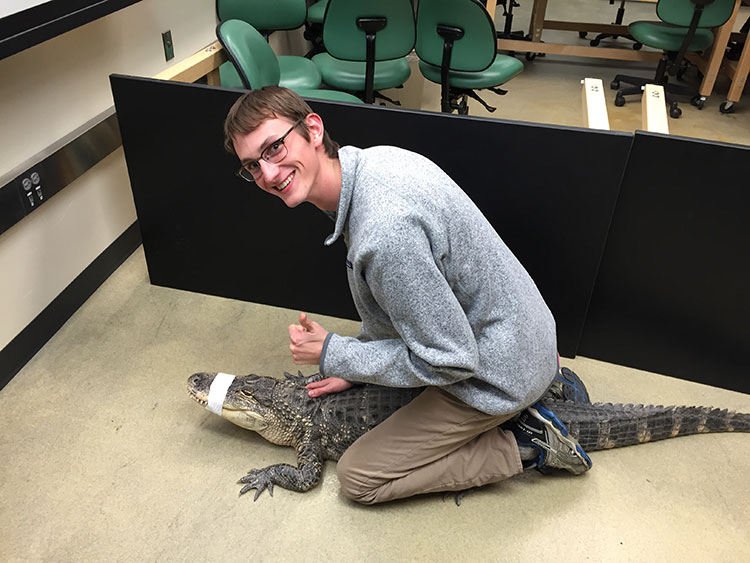
Choosing to double major was an easy decision for Ethan Freese.
"I have always been fascinated by wildlife and natural resources, so fisheries and wildlife was a no-brainer for me," said Freese, a sophomore from Lincoln. "I decided to major in grassland ecology and management after I had an internship at Pioneers Park Nature Center during my senior year of high school."
Besides juggling two majors, Freese is actively involved on campus, and currently serves as the vice president of the UNL Range Management Club.
"Last February I traveled to Sacramento, California with the club to attend the annual Society for Range Management meeting," he said. "At the conference, the UNL Range Club placed first in the undergraduate range management exam."
In addition to his Range Club duties, Freese is also an intern with the Platte Basin Timelapse project and an SNR student ambassador.
"This past semester has definitely been my busiest semester to date," Freese said. "At first, it was a little overwhelming. But I think that this has really helped me improve my time management skills."
Over the summer, Freese was also awarded a UCARE grant to study the use of sharp-tailed grouse leks by grassland bird species in the Nebraska Sandhills.
"That really helped me get out of my comfort zone and gain firsthand experience with field research," he said.
Larkin Powell, professor of conservation biology/animal ecology, said that Freese is “a quick starter” who’s demonstrated that he’s willing to take initiative.
"Ethan applied for the UCARE earlier than most students would even consider it," Powell said. "He wrangled his own small portion of our bird survey project in the Sandhills successfully. He is also a great photographer, which I find adds to his understanding of the Sandhills as an ecosystem and not just a place to do a project."
Prior to coming to SNR, Freese said he worried that his educational background wouldn't be a good fit for the school's programs.
"My high school had no agriculture or natural resources classes, so I thought that I would be at a disadvantage when I first started at SNR," he said.
But those concerns soon went away.
"All of my professors at SNR have been extremely helpful," Freese said. "I no longer feel like I am at a disadvantage. I feel like the SNR faculty and staff truly care about all of the students and they will go out of their way in order to help us better our education."
With graduation set for May 2018, Freese said he will attend graduate school and, ultimately, pursue a career as a rangeland ecologist.
And he is confident that SNR is setting him up for success in those endeavors.
"I believe my SNR education will prepare me for the future by giving me hands-on experience in field research and natural resources management," he said.
— Mekita Rivas, Natural Resources